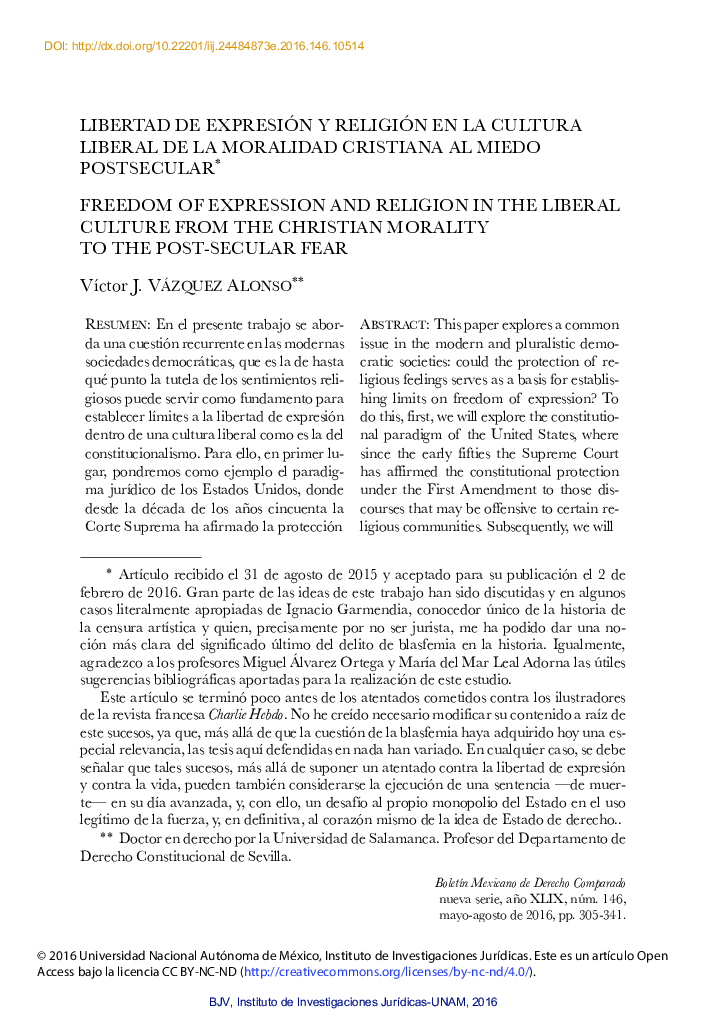| Article ID | Journal | Published Year | Pages | File Type |
|---|---|---|---|---|
| 7530873 | Boletín Mexicano de Derecho Comparado | 2016 | 37 Pages |
Abstract
This paper explores a common issue in the modern and pluralistic democratic societies: could the protection of religious feelings serves as a basis for establishing limits on freedom of expression? To do this, first, we will explore the constitutional paradigm of the United States, where since the early fifties the Supreme Court has affirmed the constitutional protection under the First Amendment to those discourses that may be offensive to certain religious communities. Subsequently, we will analyze through comparative law, how the religion's legal tutelage survives in the European legal systems, and how it has been gradually changed in its arguments with the secularization of the state. Subsequently, we will try to explain how in the postmodern societies the new blasphemous is now an insider of the political community while the new religious communities are the demanders of protection of their dogmas and symbols. Finally, this paper will attempt to show how the protection of beliefs or religious beliefs against certain offensive speech is incompatible with the basic assumptions of liberal culture. To this end, we will differentiate between hate speeches directed to certain individuals because of their religious affiliation, and other kind of discourse that only critics or affects religious beliefs or religious ideas which in any case could be excluded from the protection of freedom of expression.
Related Topics
Social Sciences and Humanities
Social Sciences
Law
Authors
VÃctor J. Vázquez Alonso,
